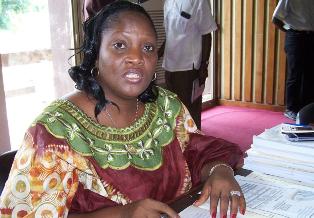The Liberian media need institutional capacity building, not just training

For the past two decades or more foreign partners have spent millions of dollars in Liberia to train reporters and editors without considering institutional capacity building, which is a very key component in having a vibrant media. From UNMIL to various international development partners including IREX and Internews, millions of United States Dollars have been directed at training and training, but if measured against such pouring in of funds administered by local and international organizations the impact leaves much to be desired.
Just training alone has not really helped in strengthening the media because professionally trained personnel are leaving media houses to seek greener pasture.
The independent media as a business does not operate in a vacuum. It relies on the economy in order to attract, maintain and increase advertisements for its survivability. But with a devastating economy such as the one we have in Liberia coupled with poor readership and dwindling circulations, the media is unable to pay professional staff and maintain them. As if that was not enough, the impact of the COVID-19 on media institutions here has left many to a near collapse.
With an appalling economic environment, the media is left alone to thrive, which is one of the key reasons why professional journalism is being relegated, giving way to mediocrity.
Such a condition brings in the compelling need for a paradigm shift in the way funds intended to assist the Liberian media should be utilized. We suggest that rather than conducting two weeks, one week, or three days’ training for journalists, grants should be provided to enable media houses to build their operational capacity.
Such grants should come along with set benchmarks that media managers, including publishers, would have to meet in order to qualify for future engagements. This is a fact: for instance, some media institutions just can’t afford to buy newsprint and other operational costs on a daily basis, let alone to regularly pay staff.
This is even compounded by delays in payment of services rendered to clients, including the government, which remains the major advertiser in the country. The woes get deepen by international non-government organizations and others directing their advertisement to the Executive Mansion’s website-the President of the Republic of Liberia website depriving media institutions of much-needed advertisement revenues.
Yet still, such payment, particularly in the public sector whenever ready, a requirement to disbursement is tax clearance. Where does a struggling media entity in such an economy like ours get money to be current with taxes? This argument is for another day.
[bsa_pro_ad_space id=1]
But the truth of the matter is the media in Liberia need serious help. They lack the operational capacity to provide the kind of services the public needs. A soft grant from international partners would go a long way in strengthening the media independence to enable play its critical role in our democratic dispensation.
This is an ideal that media development partners need to consider as we work together in strengthening the press in Liberia. We have had series of professional training programs. But in the absence of vibrant institutions journalists are turning their backs on the newsroom to seek a better life.
If the media should return to the right trajectory with appropriate standards to provide the kind of services the public deserves it needs help beyond training. The operational strength of media houses needs boosting thru grants.




















